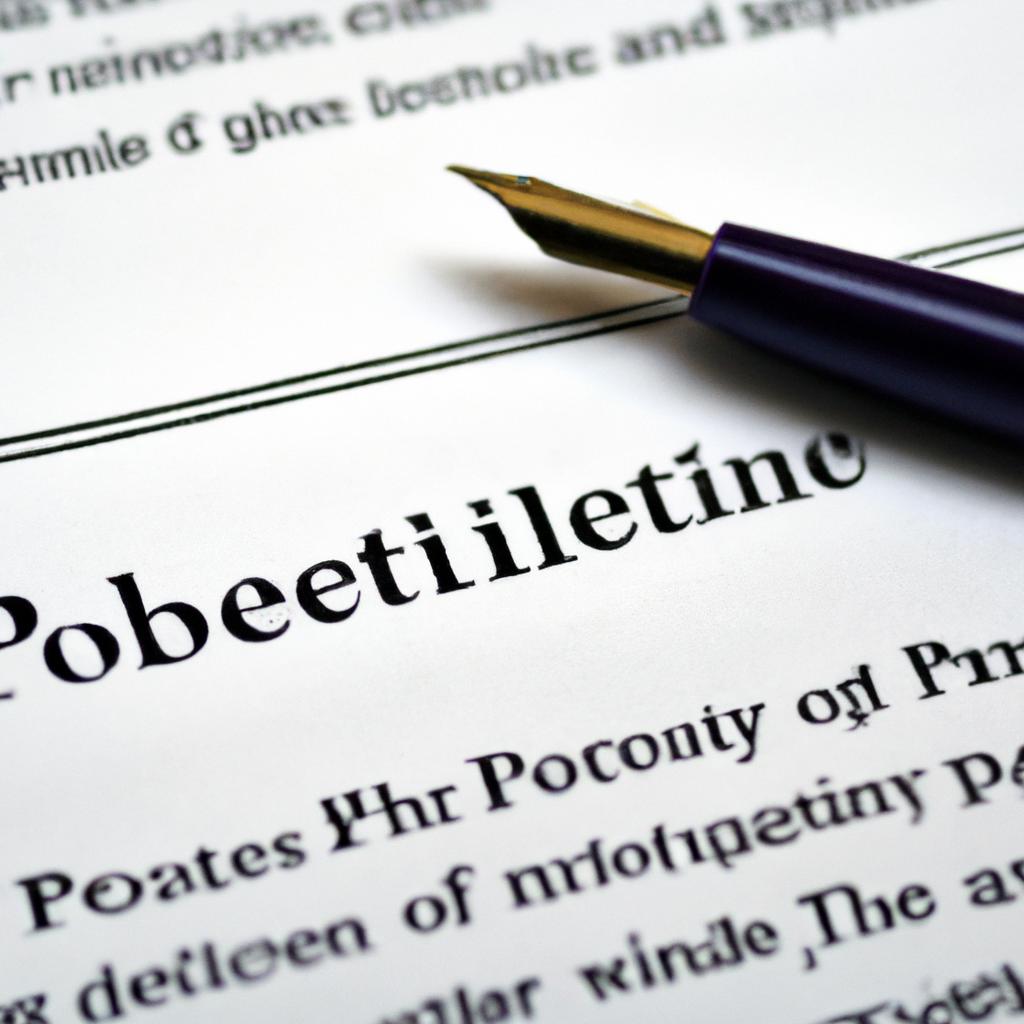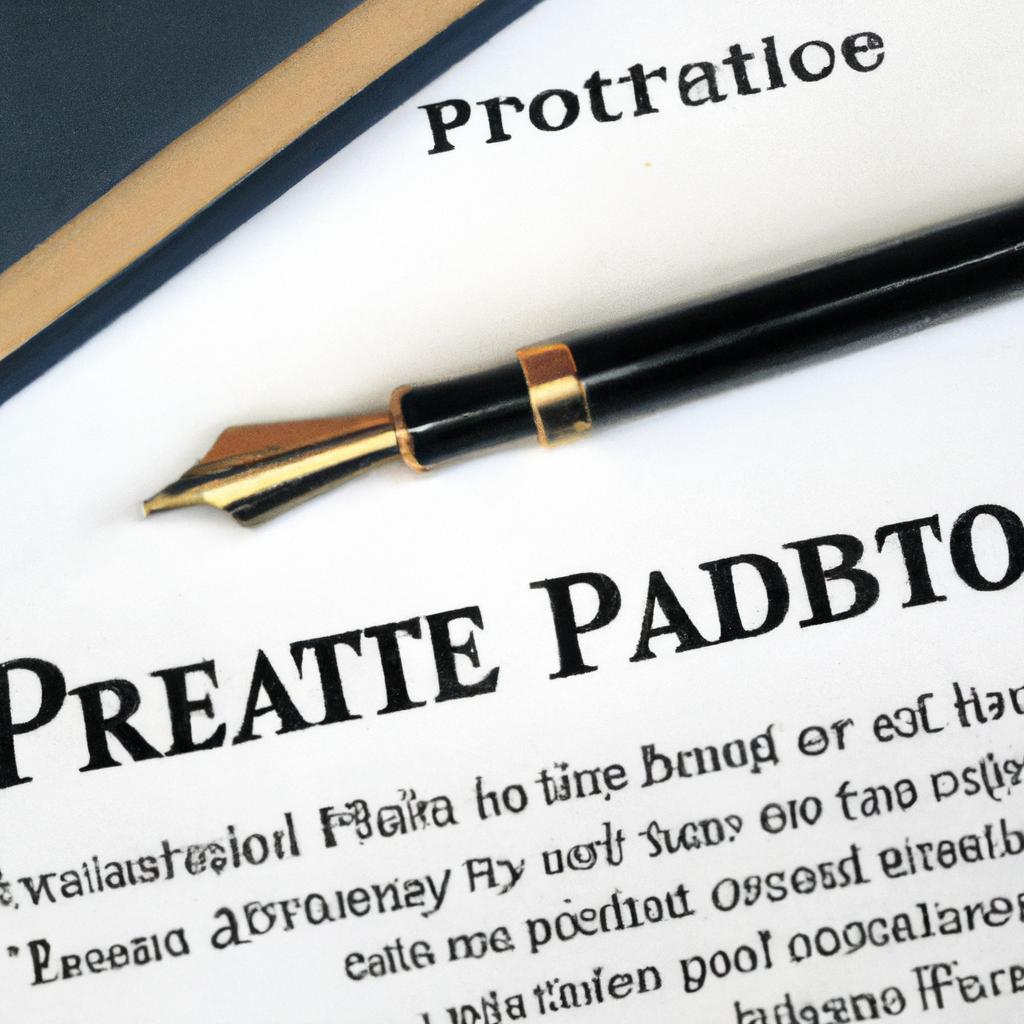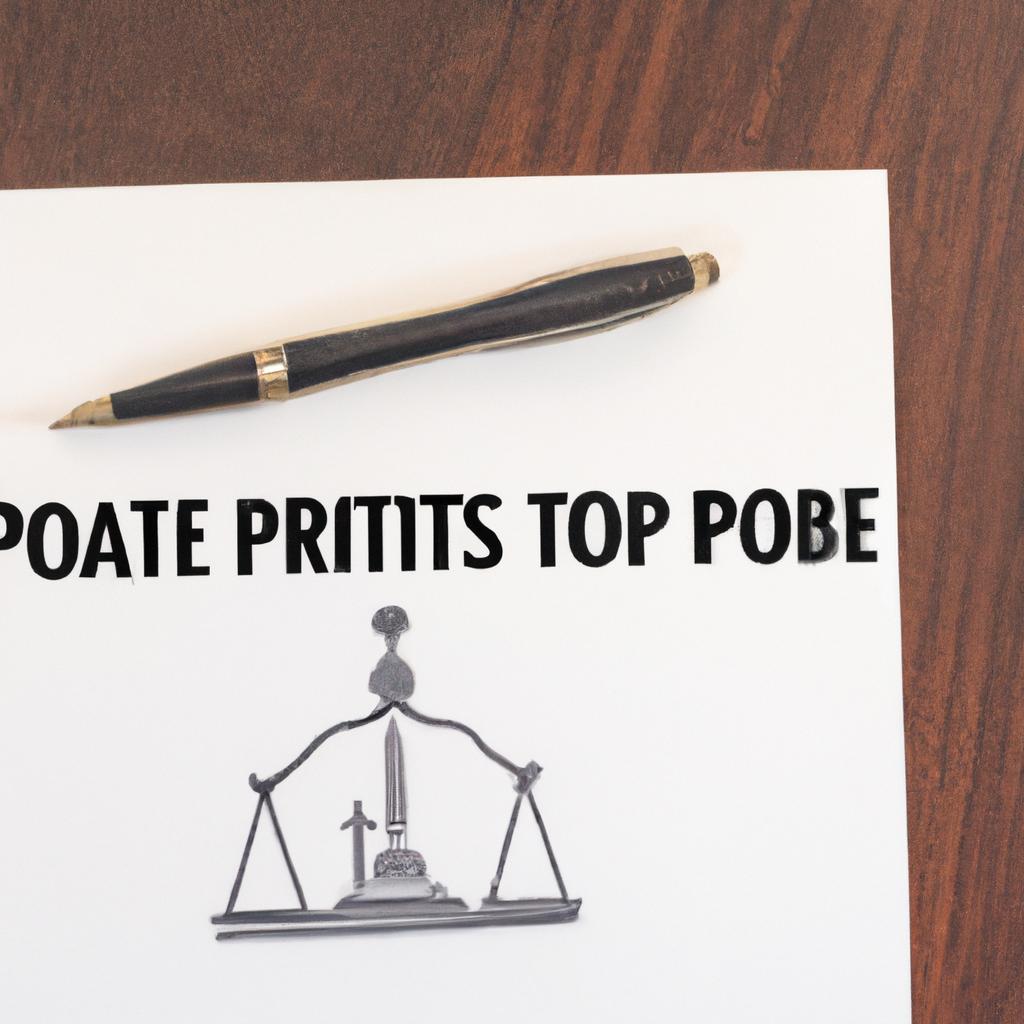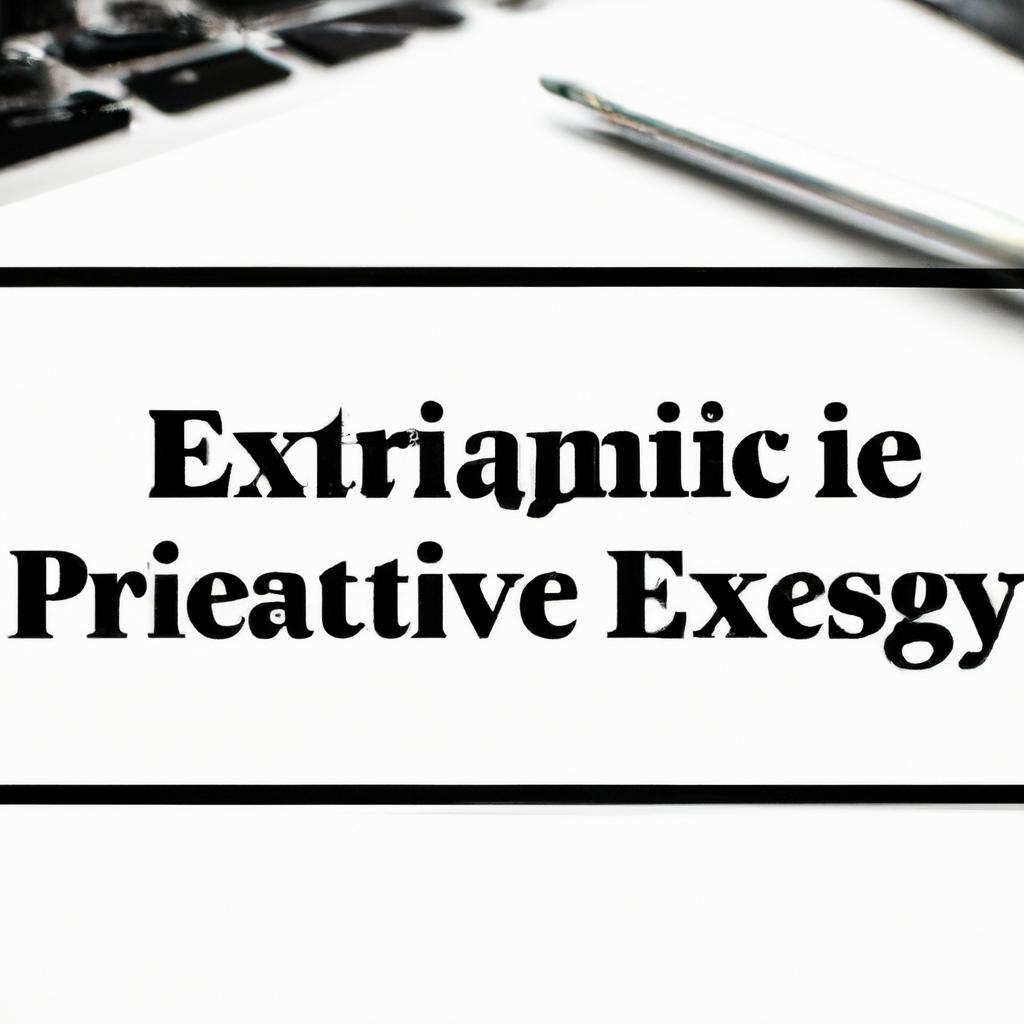In the intricate realm of estate proceedings, the probate petition stands as a crucial document that guides the distribution of assets and settles financial affairs upon the death of an individual. As seasoned legal practitioners at Morgan Legal Group in the bustling metropolis of New York City, we specialize in navigating the complex terrain of probate law. Join us as we unravel the intricate fabric of probate petitions, shedding light on their significance and intricacies in the realm of succession planning.
Understanding the Purpose of a Probate Petition
When dealing with the intricacies of estate planning, is crucial. A probate petition is a legal document filed with the court to initiate the probate process. This process involves validating a deceased person’s will, if one exists, and administering their estate according to the law.
Probate petitions serve several key purposes, including:
- Notifying beneficiaries and heirs of the deceased’s passing.
- Appointing an executor or personal representative to manage the estate.
| Benefit of Probate Petitions | Explanation |
|---|---|
| Facilitates the transfer of assets | Probate petitions help ensure assets are legally transferred to the rightful heirs. |
| Resolves disputes | Through probate proceedings, potential disputes among family members or creditors can be resolved. |

Key Components of a Well-Drafted Probate Petition
When drafting a well-crafted probate petition, there are several key components that must be included to ensure a successful outcome. These components are essential for the court to understand the specifics of the case and to provide an accurate resolution. Here are the key components that should be included in a probate petition:
- Identification of the decedent: It is crucial to clearly state the full name of the deceased individual, along with their date of death.
- Appointment of the executor: The petition should specify who is being nominated as the executor of the estate and provide reasoning for their appointment.
- List of assets and liabilities: A detailed inventory of the deceased’s assets and liabilities must be included in the petition to facilitate the probate process.
| Component | Description |
|---|---|
| Identification of the decedent | Full name and date of death |
| Appointment of the executor | Nominated executor and reasoning |
| List of assets and liabilities | Detailed inventory for probate process |
By ensuring that these key components are included in a probate petition, you can increase the likelihood of a smooth and efficient probate process. At Morgan Legal Group, we specialize in estate planning and probate matters and can assist you in drafting a comprehensive probate petition that meets all the necessary requirements.

Navigating the Probate Process: Tips for Success
When navigating the probate process, one crucial step is filing a probate petition. A probate petition is a legal document that initiates the probate process and requests the court to officially recognize a deceased person’s will and appoint an executor to handle the estate. This document is vital in ensuring that the deceased’s assets are properly distributed according to their wishes and that all debts and taxes are paid.
It is essential to carefully fill out the probate petition with accurate information and submit it to the appropriate court within the specified deadline. Failure to do so can lead to delays and complications in the probate process. It is advisable to seek guidance from an experienced probate attorney to help you navigate this complex legal process and increase your chances of success.

Maximizing Efficiency and Minimizing Delays in Probate Proceedings
When navigating probate proceedings, one of the key documents that you will encounter is a probate petition. This formal legal document is filed with the court to initiate the probate process. The petition typically includes important information such as the names of the deceased individual, the executor named in the will (if applicable), a list of heirs and beneficiaries, and a description of the assets and debts of the estate. It serves as the foundation of the probate case and sets the stage for the distribution of assets.
Additionally, the probate petition outlines the reasons why probate is necessary, identifies any challenges or disputes that may arise during the process, and provides a roadmap for how the estate will be administered. It is crucial to accurately and thoroughly complete the probate petition to avoid delays and ensure a smooth probate proceeding. Working with an experienced probate attorney can help you navigate this process efficiently and minimize any potential roadblocks along the way.
Q&A
Q: What is a probate petition?
A: A probate petition is a legal document that is filed with the court to initiate the probate process.
Q: What is the probate process?
A: The probate process is a court-supervised process that determines the validity of a deceased person’s will and oversees the distribution of their assets.
Q: Who can file a probate petition?
A: Typically, the executor named in the deceased person’s will is responsible for filing a probate petition. If there is no will, a close relative or beneficiary may petition the court to be appointed as the personal representative.
Q: What information is included in a probate petition?
A: A probate petition generally includes information about the deceased person, their assets, any debts they owe, and a request for the court to appoint a personal representative to oversee the probate process.
Q: Why is it important to file a probate petition?
A: Filing a probate petition is important because it ensures that the deceased person’s assets are distributed according to their wishes or state laws. It also provides legal protection for the executor or personal representative in the event of any disputes or challenges to the will.
Q: How long does the probate process typically take?
A: The length of the probate process can vary depending on the size and complexity of the estate, as well as any disputes that arise. In general, it can take anywhere from a few months to several years to complete probate.
Key Takeaways
In conclusion, understanding what a probate petition is and the process involved can help navigate the complexities of estate administration. By filing a probate petition, individuals can ensure a smooth transfer of assets and fulfillment of the deceased’s final wishes. Whether you are navigating the probate process for the first time or seeking to better understand it, knowing the ins and outs of a probate petition is essential. So, arm yourself with knowledge and approach the probate process with confidence.
 What is a Probate Petition: Understanding the Probate Process and How to File a Petition
What is a Probate Petition: Understanding the Probate Process and How to File a Petition
If you have recently lost a loved one, you may have heard the term “probate petition” being mentioned in legal discussions or conversations with family members. The probate process can be complex and overwhelming, especially during a time of grieving and loss. In this article, we will delve into the details of what a probate petition is, its purpose, and the steps involved in filing one.
Probate petition refers to a legal document that initiates the probate process. It is a formal request to the court to open a probate case and appoint an executor or personal representative to oversee the distribution of a deceased person’s assets. The probate process is the court-supervised procedure of identifying and settling a deceased person’s debts and distributing their assets to their beneficiaries.
The probate process can vary from state to state, and the specific steps involved in filing a probate petition may differ as well. However, the main objective of a probate petition remains the same – to initiate the legal process of settling a deceased person’s estate.
Why is Probate Necessary?
Probate is necessary to ensure that a deceased person’s assets are properly distributed, and their debts are paid off. It also provides a way for interested parties to contest the will or any legal claims against the estate. Probate proceedings are also used to protect the rights of creditors, ensuring they are paid before any beneficiaries receive their inheritance.
Furthermore, the probate process gives the court the authority to distribute the deceased person’s assets in accordance with their will or state laws if the person dies without a will (intestate). This process provides a level of assurance that the deceased’s wishes are carried out and that their assets are not mishandled or misappropriated.
Who Can File a Probate Petition?
The person who can file a probate petition, also known as the petitioner, varies depending on state laws and the specific circumstances of the case. Usually, the executor named in the deceased person’s will is the one responsible for filing the petition. If the deceased did not name an executor in their will, the court will appoint someone to fulfill this role.
The petitioner has the responsibility of managing and distributing the deceased person’s assets, paying off debts and taxes, and submitting reports to the court. In some cases, multiple individuals may be named in the will to serve as co-executors or co-administrators. In such situations, all parties must agree on decisions related to the estate.
Steps Involved in Filing a Probate Petition
Before filing a probate petition, it is essential to consult with an experienced probate attorney to ensure you have all the necessary documents and follow the correct procedures. The following are the general steps involved in filing a probate petition:
1. Filing the Petition and Supporting Documents
The first step in the probate process is filing a probate petition with the probate court in the county where the deceased person lived. Along with the petition, the petitioner must submit the original will, if there is one, along with a death certificate, list of heirs, and any other required documents. The court will review the documents and determine if they are sufficient to move forward with the probate process.
2. Appointing an Executor
If the court finds the petition and supporting documents valid, they will appoint an executor or personal representative to manage the estate. The executor’s role is to gather and inventory all of the deceased person’s assets and manage them until distribution to beneficiaries.
3. Notifying Creditors
In most states, the petitioner must publish a notice of the probate proceeding in the local newspaper to notify creditors and potential heirs. This allows any creditors to make claims against the estate and gives heirs the opportunity to contest the will.
4. Proving the Will’s Validity
If the deceased person left a will, the court will hold a hearing to determine the will’s validity. The executor or any interested parties can present evidence to prove the will’s authenticity.
5. Administering the Estate
Once all assets and debts have been accounted for, the executor must distribute the remaining assets to the beneficiaries named in the will. If there is no will, state laws will determine who receives the assets.
6. Filing Final Documents
Once all assets have been distributed, the executor must file a final accounting with the court. This document details all financial transactions related to the estate, including payments made to creditors and beneficiaries. Once the court approves the accounting, the probate process is complete, and the executor’s duties are fulfilled.
Benefits and Practical Tips
Filing a probate petition can be a daunting task, made even more challenging during a time of grief. However, understanding the probate process and working with an experienced probate attorney can make the process less overwhelming. Here are a few practical tips to keep in mind:
– Gather all necessary documents, such as the original will, death certificate, and list of heirs, before filing the petition.
– Consult with a probate attorney to ensure you are following the correct procedures and have all the necessary documents.
– Keep careful records of all financial transactions related to the estate to submit in the final accounting.
– Communicate openly and regularly with beneficiaries to ensure transparency and avoid conflicts.
In Conclusion
Probate petition is a crucial step in the probate process that initiates the legal proceedings of settling a deceased person’s estate. While the process may vary from state to state, it generally involves filing the petition, appointing an executor, notifying creditors, proving the will’s validity, administering the estate, and filing final documents. By understanding the probate process and seeking professional assistance, you can ensure a smooth and successful probate process.

